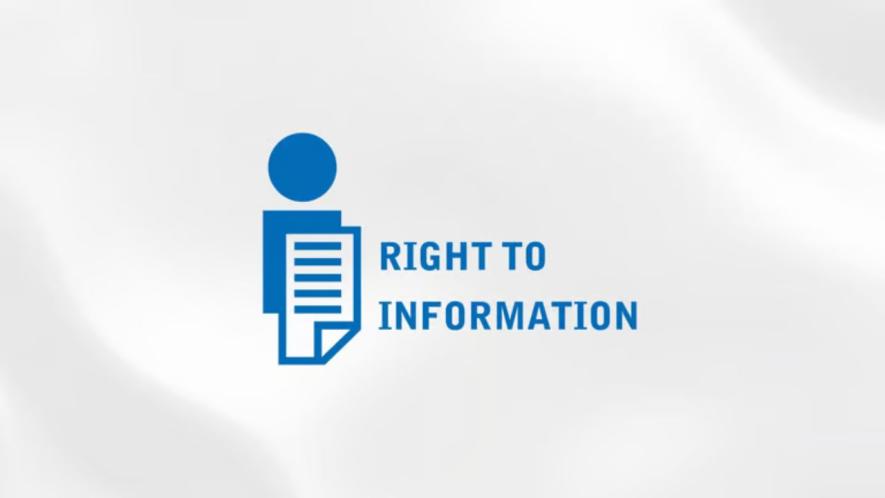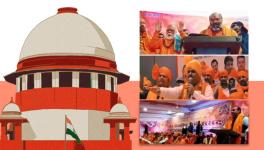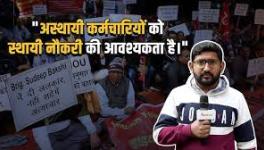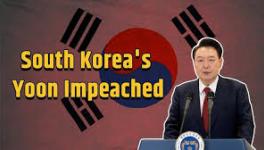RTI Being Transformed Into Right to Deny Information

It is worth revisiting two judgments of the Supreme Court. A five-judge Bench has ruled in P. Ramachandra Rao versus State of Karnataka: “Courts can declare the law, they can interpret the law, they can remove obvious lacunae and fill the gaps but they cannot entrench upon in the field of legislation properly meant for the legislature.”
In Rajiv Singh Dalal (Dr) versus Chaudhari Devilal University, the Supreme Court, after referring to its earlier decisions, has observed as follows. “The decision of a court is a precedent if it lays down some principle of law supported by reasons. Mere casual observations or directions without laying down any principle of law and without giving reasons does not amount to a precedent.”
In October 2012, in Girish Deshpande versus Central Information Commissioner & others, the Supreme Court gave a judgment that had the effect of amending the Right to Information (RTI) Act, 2005 made by the Parliament. Though it is not supported by reasons or any principle of law, it has been treated as precedent by many courts and information commissions.
The RTI Act recognises that citizens are the rulers of a democracy. Therefore, they have a right to receive information held by the government. The law expects that most information would be available to citizens without having to apply for it since it should be available suo moto. It also envisages computer networks being in place which could make it simple to access and provide the information.
The Girish Ramchandra judgment gives a licence to refuse most information at will to public information officers, first appellate authorities, information commissioners and courts. It can even be used to deny information for which the RTI Act mandates suo moto disclosure under Section 4.
An RTI applicant, Girish Ramchandra Deshpande, had sought copies of all memos, show cause notices and censure or punishment awarded to a public servant Lute. He had also sought other details such as his movable and immovable properties and also the details of his investments, lending and borrowing from banks and other financial institutions. Further, he had sought the details of gifts stated to have been accepted at the marriage of his son.
The RTI Act only requires information that should be on record to be provided. The court held that what was sought was “personal information” and hence it is exempted under Section 8 (1)(j) of the RTI Act.
This Section exempts “information which relates to personal information the disclosure of which has no relationship to any public activity or interest, or which would cause unwarranted invasion of the privacy of the individual unless the Central Public Information Officer or the State Public Information Officer or the appellate authority, as the case may be, is satisfied that the larger public interest justifies the disclosure of such information:
The RTI Act recognises that citizens are the rulers of a democracy. Therefore, they have a right to receive information held by the government.
Provided that the information, which cannot be denied to the Parliament or a state legislature, shall not be denied to any person.”
A simple reading of the words shows that under this clause information from public records can be denied if:
-
The information requested is personal information and the nature of the information requested is such that it has apparently no relationship to any public activity or interest; or
-
Where the information requested is personal information, and the disclosure of the said information would cause an unwarranted invasion of the privacy of the individual.
The court did not rule on whether the information was an outcome of a public activity or if its disclosure would amount to an unwarranted invasion of the privacy of the individual.
When denying information on the grounds of privacy it is necessary to consider the areas in which reasonable restrictions can be placed on the right to information.
These are listed in Article 19(2) and there are only two words that can relate to privacy: “decency” or “morality” would be an invasion of privacy and should not be disclosed.
Realising that it may be difficult for public information officers and other appellate authorities to decide on what constitutes privacy, the Parliament gave a simple test in the proviso that information that would not be denied to the Parliament or legislature would not be denied to any person.
This can only have one meaning: that anyone claiming that information would be denied to the citizen would make a subjective statement that he would deny the information to the Parliament. The Supreme Court gave no reasoning but merely stated that the information sought was personal information and need not be given unless a larger public interest could be demonstrated.
It did not conclude whether the information was with respect to public activity, or whether it was an invasion of privacy. Further, it did not even quote the all-important proviso about denying the information to the Parliament. It was as if the court did not read the complete provision!
It also missed taking the ratio of the Supreme Court in R. Rajagopal versus State of Tamil Nadu into consideration, in which case it had been established:
When denying information on the grounds of privacy it is necessary to consider the areas in which reasonable restrictions can be placed on the right to information.
“We may now summarise the broad principles flowing from the above discussion:
-
A citizen has a right to safeguard the privacy of his own, his family, marriage, procreation, motherhood, child-bearing and education among other matters. None can publish anything concerning the above matters without his consent— whether truthful or otherwise and whether laudatory or critical.
-
Once a matter becomes a matter of public record, the right to privacy no longer subsists and it becomes a legitimate subject for comment by press and media among others.
We are, however, of the opinion that in the interests of decency [Article 19(2)] an exception must be carved out to this rule, viz., a female who is the victim of a sexual assault, kidnap, abduction or a like offence should not further be subjected to the indignity of her name and the incident being publicised in press or media.
-
In the case of public officials, it is obvious, the right to privacy, or for that matter, the remedy of action for damages is simply not available with respect to their acts and conduct relevant to the discharge of their duty.”
The Deshpande decision was given in a special leave petition (SLP) without giving any reasons or considering the law laid down by the Parliament or the precedent of R. Rajagopal. Some people argue that a judgment given in an SLP does not become a precedent, but this has been treated as a precedent in many subsequent Supreme Court judgments.
The Supreme Court itself has treated it as a precedent in the Canara Bank and the R.K. Jain cases. Thus, a decision that did not give any reasoning, had no ratio and forgot to even mention the complete Section is becoming the defining precedent for refusing information.
It did not even consider the earlier decision on R. Rajagopal and is, therefore, per incuriam. Most governments have issued circulars mentioning this judgment and laying down that personal information should be denied unless a larger public interest is demonstrated.
It is very unlikely that a public information officer or a first appellate authority will ever come to such a conclusion. Even at the level of information commissioners, there will be less than 1 percent of decisions that declare that an exemption applies and yet the information must be disclosed as there is a larger public interest in disclosure.
Across the country, information about members of legislative assembly (MLAs) funds expenditure, officer’s leave, caste certificates, file notings, educational degrees, beneficiaries of subsidies and much more are being denied.
Some people argue that a judgment given in an SLP does not become a precedent, but this has been treated as a precedent in many subsequent Supreme Court judgments.
Many public information officers are denying information that may have the name of a person claiming it is personal information and hence exempt. I would also point out that whereas in the ADR PUCL judgment, the Supreme Court had ordered that citizens have a right to know about the assets of those who want to become public servants (stand for elections) the Girish Deshpande judgment ruled that citizens had no right to know about the assets of a public servant!
Most information relates to some person. In fact, in Section 4 of the RTI Act, the government is mandated to provide information about the monthly remuneration received by each officer, details of beneficiaries of subsidies, and particulars of recipients of concessions, permits and authorisations granted by it.
Many public information officers are refusing to provide even this information. This judgment is per incuriam but has now authorised denial of most information that can be termed personal.
There are other judgments of the Supreme Court that have not been too kind to the RTI Act. The Supreme Court has guarded and broadened the scope of Article 19 (1)(a) consistently until 2010. After that, it appears that the court has steadily constrained the right to information beyond what the law made by the Parliament and the Constitution envisage.
The former Chief Justice of India, Justice S.A. Bobde, observed in December 2019 that the extensive use of the RTI Act has created “a sense of paralysis and fear” in the government, precluding those in the government from taking decisions.
Underlining the “abuse” of the Act, the CJI said there is a need to lay down guidelines on its use since the RTI was not an “unrivaled” right.
Before that, in November 2019, in Subhash Chandra Agarwal versus the Supreme Court of India, the Supreme Court said in Paragraph 59: “Reading of the aforesaid judicial precedents … would indicate that personal records, including name, address, physical, mental and psychological status … are all treated as personal information.
Across the country, information about members of legislative assembly (MLAs) funds expenditure, officer’s leave, caste certificates, file notings, educational degrees, beneficiaries of subsidies and much more are being denied.
“Similarly, professional records, including … evaluation reports, disciplinary proceedings, etc., are all personal information. Medical records … information relating to assets, liabilities, income tax returns … are personal information. Such personal information is entitled to protection from unwarranted invasion of privacy and conditional access is available when stipulation of larger public interest is satisfied. This list is indicative and not exhaustive.”
This conceals corruption and protects people who have submitted false bills or certificates. It also ensures that fictitious beneficiaries of various schemes cannot be caught. The law’s objective of curbing corruption is being defeated.
It reiterates the Girish Deshpande judgment and puts its stamp on it. Significantly, it did not mention the proviso! It is very painful that Section 8 (1)(j) of the RTI Act is being given a meaning which is not borne out by the law passed by the Parliament nor sanctified by Article 19(2) of the Constitution.
The fundamental right to information is being amended by the Supreme Court not sanctified by the law or the Constitution.
There is a need for citizens, the legal fraternity and the judiciary to discuss and debate these matters and in particular address these issues. The fundamental right to information must be interpreted as per the provisions of the law and Section 8 (1)(j) must be properly understood.
Citizens have rightly protested against an amendment in the RTI law by the Parliament which altered the positions and tenures of the commissioners. The Supreme Court has enlarged the scope of denial in a very significant manner, but the citizens are not even discussing this.
The Supreme Court’s rulings are slowly being spread across the nation. Governments have issued circulars highlighting these and slowly public information officers are realising the excuse these give them to deny information whenever they do not wish to give information.
Underlining the “abuse” of the Act, the CJI said there is a need to lay down guidelines on its use since the RTI was not an “unrivaled” right.
A significant number of information requests claim it is personal information. This is transforming the right to information into a right to deny information. This is empowering public servants, instead of citizens.
The nation must realise that the curbs on freedom of speech, the right to publish and the right to information are interlinked and must be treated with equal importance. Citizens must discuss and debate these judgments freely, and if they are not vigilant, the RTI Act will be damaged and constrained very significantly.
Shailesh Gandhi is a former Central Information Commissioner.
Get the latest reports & analysis with people's perspective on Protests, movements & deep analytical videos, discussions of the current affairs in your Telegram app. Subscribe to NewsClick's Telegram channel & get Real-Time updates on stories, as they get published on our website.
























